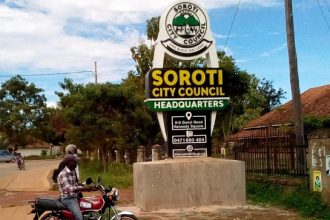Controversy Erupts Over Rwabwogo’s Claims on Uganda’s Progress
Odrek Rwabwogo, known as the son-in-law of President Museveni, recently took to social media to make a rather bold claim. He asserted that the National Resistance Movement (NRM) had brought “sanity and stability” to Uganda. Rwabwogo’s statement, made amidst online chatter, sparked a wave of satirical reactions from Ugandans, who couldn’t help but poke fun at his assertion.
In his post, Rwabwogo reminisced about his encounter with Amb Maj Gen Matayo Kyaligonza, a figure he described as a “ferocious fighter” who played a role in historical events. Rwabwogo then shifted focus to his efforts in 2015 to rectify what he perceived as mistakes within the NRM. He claimed that these errors had led to intellectual and ideological weaknesses within the party.
Rwabwogo went on to describe himself as a “force multiplier” in terms of knowledge and modern methods of nation-building. He expressed satisfaction at the reaction of Maj Gen Matayo to his recent work, suggesting that it had finally convinced the latter of the NRM’s missed opportunities in 2015. Rwabwogo’s musings about the “golden generation” that supposedly restored sanity and ended insecurity in Uganda were met with varying degrees of sarcasm and disbelief from netizens.
The online community wasted no time in responding to Rwabwogo’s claims with biting satire. Some users couldn’t resist questioning the reality of the “sanity and stability” purportedly brought by the NRM, citing ongoing issues such as corruption and insecurity. Others took a more personal approach, targeting Rwabwogo’s familial ties to the president and his perceived privileges.
One user questioned the effectiveness of his initiatives, such as teaching Ugandans how to drink coffee. Despite Rwabwogo’s attempts to portray himself as an entrepreneur and advocate for national values, his statements were met with skepticism and ridicule from a populace disillusioned with the status quo.
The satirical responses served as a reflection of the frustration and cynicism prevalent among Ugandan citizens, who remain skeptical of grandiose declarations from those in positions of power. In a country grappling with myriad challenges, including political unrest and economic inequality, Rwabwogo’s assertions provided fodder for a much-needed dose of humor and irony in the face of adversity.




















